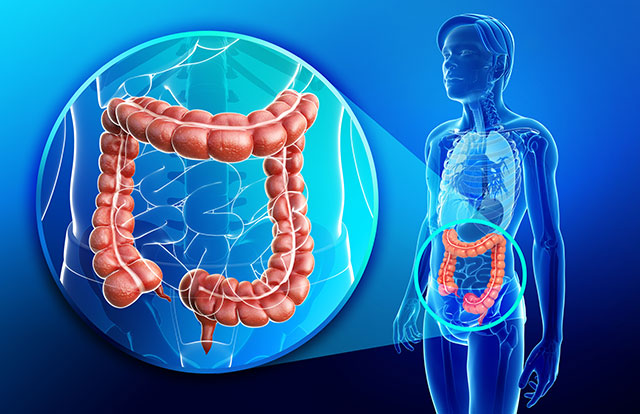Study: Eating 80% of your daily calorie intake before 1 p.m. could help prevent diabetes
06/21/2023 / By Olivia Cook

Eating 80 percent of your daily calorie intake before 1 p.m. could help prevent Type 2 diabetes (T2D), according to a new study.
Findings of the study were presented on June 15 at ENDO 2023, the Endocrine Society’s annual meeting held in Chicago. The authors of the study invited 10 participants who had high blood sugar levels and obesity.
The participants were urged to follow an early time-restricted feeding (ETRF) pattern – where 80 percent of calories were consumed before 1 p.m. – for the first seven days of the study period. They then shifted to eating a regular feeding pattern – where 50 percent of daily calories were consumed after 4 p.m. – from the eighth until the 14th day.
The participants wore blood sugar monitors throughout the study period. While their weight stayed constant throughout the research period, their blood sugar levels were more consistent and less elevated when they followed the ETRF pattern.
Lead study author Dr. Joanne Bruno noted that their research shows that one week of following this diet strategy reduces fluctuations in blood sugar levels, and reduces the time that the blood sugar is elevated above normal levels. “This suggests ETRF may be a helpful strategy for those with pre-diabetes or obesity to keep their blood sugars in a normal range, and prevent them from progressing to T2D,” Bruno explained.
Study co-author Dr. Jose Aleman shared his colleague’s view. He explained: “We decreased the time these individuals were having high blood sugar levels with just one week of ETRF feeding. The findings show that eating a majority of one’s calories earlier in the day reduces the time that the blood sugar is elevated, thereby improving metabolic health.”
Fasting shows promise in addressing blood sugar spikes and T2D
Pre-diabetes pertains to a condition where blood sugar levels are higher than normal, but not high enough to be classified as T2D. Meanwhile, ETRF as outlined in the study involves restricting calories to the first six to eight hours of the day. Previous studies have suggested that this form of intermittent fasting may improve cardio-metabolic health and blood sugar levels.
Bruno said her team is still exploring why eating the bulk of calories during a certain window, especially before 1 p.m., might be helpful. Nevertheless, she explained that many aspects of the body fluctuate according to certain circadian patterns. Taking in more calories during certain times of the day when one is most active may help improve hormonal and metabolic health.
ETRF can be considered a form of intermittent fasting, which the Mayo Clinic defines as not eating for certain periods of time a day. While there are different methods, the overarching concept remains the same – anything can be eaten, as long as they are eaten only during specific hours of the day. (Related: The top 20 foods for reversing type-2 diabetes.)
Intermittent fasting works by forcing the body to use up its sugar reserves during the periods where no food is consumed. When the sugar reserves are exhausted, the body then begins burning fat for energy – a concept called metabolic switching.
According to registered dietitian and nutritionist Robin Foroutan, ETRF and other forms of intermittent fasting may also help cells become more sensitive to the hormone insulin. Pre-diabetics are insulin-resistant, which means their cells do not respond well to it, keeping blood sugar levels elevated. Having a longer gap between meals may help because it requires the body to pump out insulin less often.
Visit PreventDiabetes.news for more stories about ETRF and other strategies to address pre-diabetes.
Watch Dr. Edward Group explaining intermittent fasting and whether it is safe for everyone.
This video is from the Dr. Edward Group channel on Brighteon.com.
More related stories:
Diabetes skyrockets 75% in just one decade.
Drinking just two diet drinks a day doubles the risk of diabetes.
Study: Intermittent fasting is key to addressing diabetic pandemic.
The ketogenic diet fights cancer, diabetes and Alzheimer’s.
Sources include:
Submit a correction >>
Tagged Under:
alternative medicine, blood sugar, diabetes cure, early time-restricted feeding, food cures, food is medicine, food science, health science, insulin sensitivity, intermittent fasting, metabolic switching, natural cures, natural health, natural medicine, pre-diabetes, prevent diabetes, research, Type 2 Diabetes
This article may contain statements that reflect the opinion of the author
RECENT NEWS & ARTICLES
BloodSugar.News is a fact-based public education website published by Blood Sugar News Features, LLC.
All content copyright © 2018 by Blood Sugar News Features, LLC.
Contact Us with Tips or Corrections
All trademarks, registered trademarks and servicemarks mentioned on this site are the property of their respective owners.




















